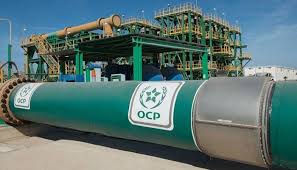The designation of a project of “national significance” by Britain might help clear regulatory obstacles for the construction of an undersea cable bringing renewable energy from Morocco.
In order to deliver solar and wind energy from the Sahara to 7 million British homes by 2030, Xlinks a business led by former Tesco CEO Dave Lewis, plans to construct 3,800 kilometers (2361.21 miles) of undersea cables.
Xlinks referred to the government’s approval of its initiative as “a major milestone,” but there are still numerous obstacles to overcome.
In addition to needing to construct the world’s longest high-voltage direct current subsea cable, Xlinks also requires additional money, long-term price agreements, and authorization to travel through French and Spanish waters.
Lewis told the Financial Times that the cost is anticipated to be between 20 and 22 billion pounds ($24.47 billion).
Xlinks said the project would support Morocco’s energy export plan and generate up to 10,000 jobs in the country, 2,000 of which would be permanent.
In a statement, the nation’s new energy security and net zero minister, Claire Coutinho, said the initiative was crucial because it might aid Britain in moving away from fossil fuels.
“The proposed project could play an important role in enabling an energy system that meets the UK’s commitment to reduce carbon emissions and the government’s objectives to create a secure, reliable and affordable energy supply for consumers,” the statement read.
The infrastructure required for the Xlinks cables which would come onshore in southwest England, would be approved by the government rather than local authorities under the national significance classification.
The approach of Prime Minister Rishi Sunak to achieve Britain’s net zero emissions objective has come under significant scrutiny after he softened goals for outlawing new gasoline vehicles and after the government was accused of providing insufficient incentives to builders of domestic offshore wind farms.
The government approved the construction of the largest new North Sea oilfield in years earlier this week, citing the need to increase energy security.


















